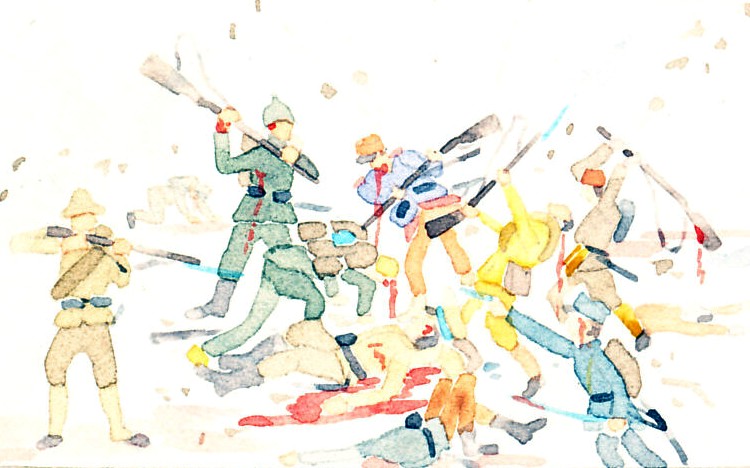Children playing 'In the Dardanelles'. From February 19 to March 18, 1915, a Franco-British fleet tried to force its way through the Dardanelles to Constantinople. The Strait was defended by forts, some with modern German artillery. After a failure to break through on March 18, the Allies decided to invade, and in April, landed on the Gallipoli peninsula. Illustrated postcard by Pauli Ebner.

In den Dardanellen
P. Ebner.
Reverse:
Nr. 992
M. Munk Wien
Geschützt
Other views:
Larger, Larger, Back
